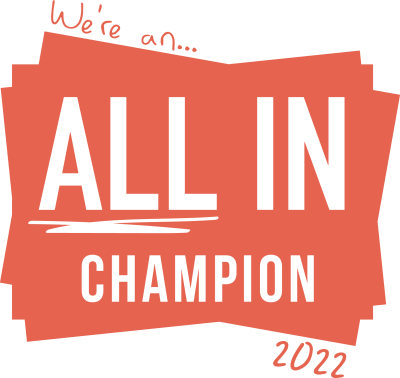THERE’S NOTHING RADICAL ABOUT DOING THE RIGHT THING
When lives are at stake through inaction, taking on structural inequality through creativity is just sensible, writes Hannah Hayes-Westall, strategy director at MullenLowe Group UK
In her book We Need New Stories Nezrine Malik calls it the Women’s Bargain and it’s the trading of effort and acquiescence for safety. A version of it exists for all disempowered groups whether they are defined by their race, gender, physicality, sexuality, faith, or some other characteristic and it’s more than annoying because what it reveals can kill you.
For a woman the Bargain might work like this: A man surrounded by men – maybe from a building site, or from a passing van, shouts ‘Cheer up love, it might never happen’ at a woman he doesn’t know who, if she doesn’t smile immediately in response, will be abused by one or all of the men with him. Everyone involved understands the terms of the exchange the woman is forced into and everyone understands too, and on a visceral level, that the man is exercising his ability to command a response from the woman, because he can.
There are similar versions of this Bargain taking place all the time, from the ‘Where are you really from?’ Bargain opener to the ‘You’re a big girl aren’t you?’ or the ‘Who cares what colour the plaster is when you’ve cut your finger?’ and the thinking, or unthinking comments that require acquiescence or performance from those with less power to placate the powerful reveal the imbalances that leach into the bones of society, affecting medical research, education, law enforcement, all the other areas of life where losing out means loss of years living.
No wonder ‘radical’ artists want to change things. But should saving lives have to be considered a radical act?
Taking on structural inequality through art practice has often been left to those most disadvantaged by the status quo, and there are many eminently sensible responses to situations that are almost unbearably difficult. The Chicagoan artist Theaster Gates is familiar with the effortful nature of taking on the challenges of inequality. One of nine children, he has said that it was his sisters’ activism that engaged him from an early age in ideas around the steps needed to achieve real equality, resulting in the young artist graduating with a degree in both pottery and urban planning, and putting both practices to work to change community outcomes.
Gates became known to the mainstream with his work on the Dorchester Projects, a project where, in the aftermath of 2008 he acquired a bungalow in the derelict South Side of Chicago for $16,000, and renovated it into a community art space – so far so predictable – but then repurposed the materials salvaged from the renovation to build shoe-shine stands that referencing a history of Black poverty and labour, which were sold for thousands of dollars at an art fair in Miami. With the proceeds, he bought another property on Dorchester Avenue, the same street as the first. And continued on apace. The Dorchester Projects now comprises 32 units, and has been funded by other partners, as well as projects like creating marble ‘bonds’ from the wall tiles a derelict bank bought from the city for $1, inscribed with ‘In Art We Trust” and sold for $5,000 each to fund the renovation of the bank.
Theaster Gates has said “Impact to me is about action. It is hard to understand that in an area where there is abject poverty, simply choosing to stay becomes a radical act, even if you didn’t intend for it to be radical.”
Well before the idea of structural inequality became part of Generation TikTok’s activism artists were exploring its concepts, probing for weaknesses, looking for solutions. They and their work is often labelled radical, but when lives are at stake from inaction, I can’t help but wonder if radical is the right word? Is the word we’re looking for not ‘radical’, but the significantly less showy ‘sensible’?
I don’t know, and would love to know what you think, but if you are thinking about the work you are doing to level up society through your own practice or in your daily work, and whether it is enough. I would also like to leave you with a concept articulated by Charles M Blow in his new book The Devil You Know, that the idea of progressiveness has become owned by those who benefit from the status quo most; that when we talk about making progress, we are talking about making change at a speed that suits those who are already in positions of power.
Hannah Hayes-Westall, Strategy Director, MullenLowe Group UK
